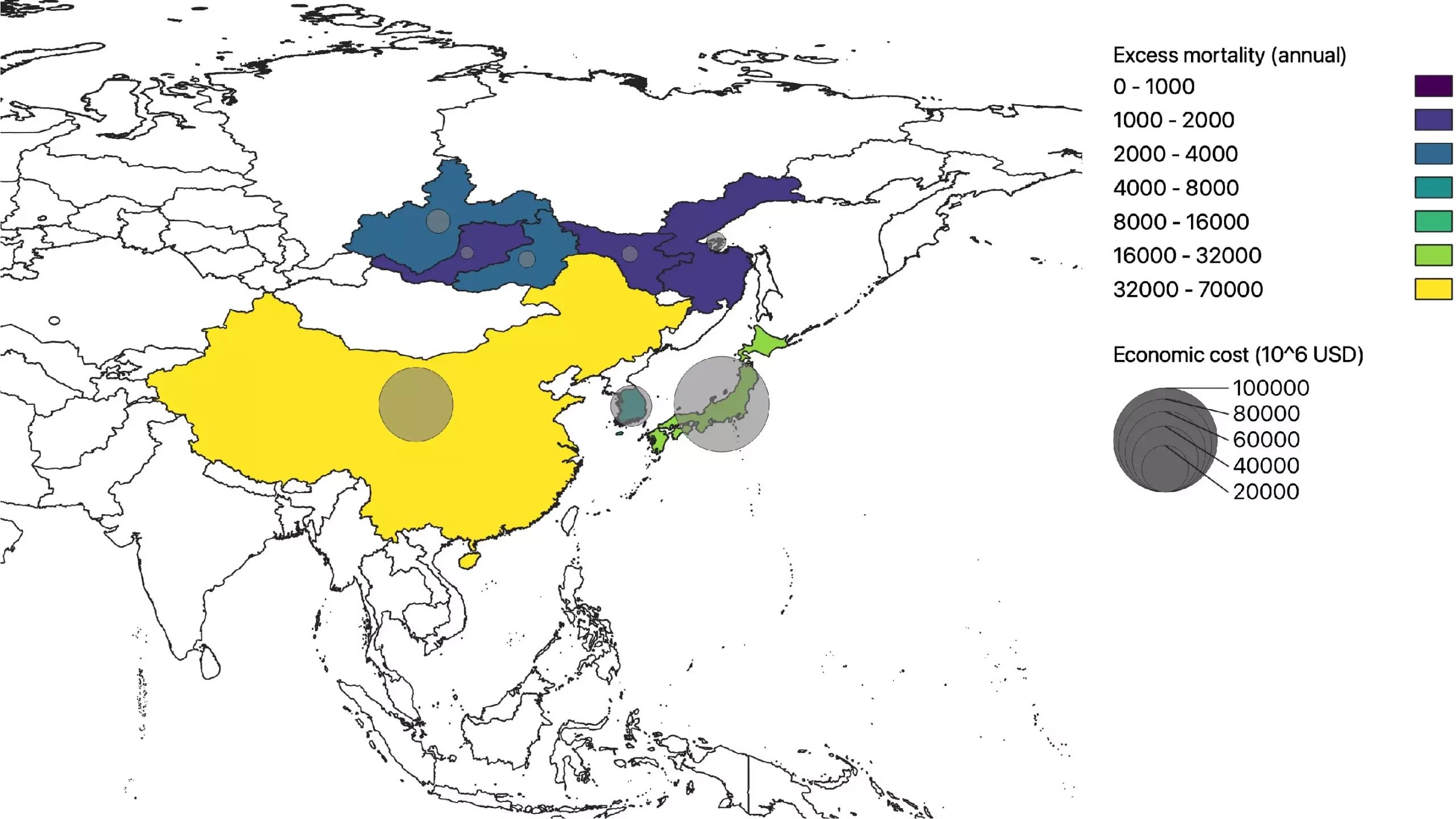As wildfires in Siberia continue to increase in frequency, researchers have been studying the potential impacts on global climate, air quality, health, and economies in regions across the northern hemisphere. A recent study conducted by researchers at Hokkaido University, the University of Tokyo, and Kyushu University has shed light on the significant and widespread effects of these wildfires. The findings, published in the journal Earth’s Future, highlight the potential consequences of escalating wildfires in Siberia under various scenarios.
The researchers utilized global numerical simulation experiments to assess the impact of intensified wildfires in Siberia on air quality, premature mortality, and economies. The study focused on the emission of atmospheric aerosols by wildfires, which can have far-reaching effects on both air quality and climate. By employing a Japanese global climate modeling system known as the Model for Interdisciplinary Research on Climate version 5 (MIROC5), in combination with models like the aerosol model SPRINTARS, the researchers were able to analyze the potential outcomes of increased wildfires in Siberia.
One of the key findings of the study was the cooling effect observed across the northern hemisphere as a result of the wildfires in Siberia. This cooling effect is believed to be linked to the reflection of sunlight by aerosol particles emitted during the wildfires. Furthermore, the study predicts a worsening of air quality not only in the local regions near the wildfires but also in extensive downwind areas, including large parts of East Asia. The release of particulate and gas pollutants from the wildfires is expected to contribute to deteriorating air quality in these regions.
The research also points to significant health and economic implications resulting from the wildfires in Siberia. The estimated direct impact on increased deaths due to air pollution could lead to health-related costs amounting to billions of US dollars annually. It is worth noting that these costs do not account for additional expenses related to non-fatal illnesses, which could result in workplace absences and reduced educational opportunities. The study highlights the need for increased efforts to mitigate the effects of Siberian wildfires in order to prevent excess deaths, respiratory illnesses, and economic losses.
The study underscores the critical importance of addressing the impact of wildfires on global climate and air quality. As the world continues to experience the effects of global warming, the consequences of massive wildfires in regions like Siberia are likely to become more pronounced. The researchers emphasize the need for further refinement of global climate models to provide more accurate estimates of the impacts of wildfires and to aid in the development of effective mitigation strategies. The findings serve as a stark reminder of the urgent need to address the growing threat posed by wildfires to our environment and society.


Leave a Reply